Study Centre
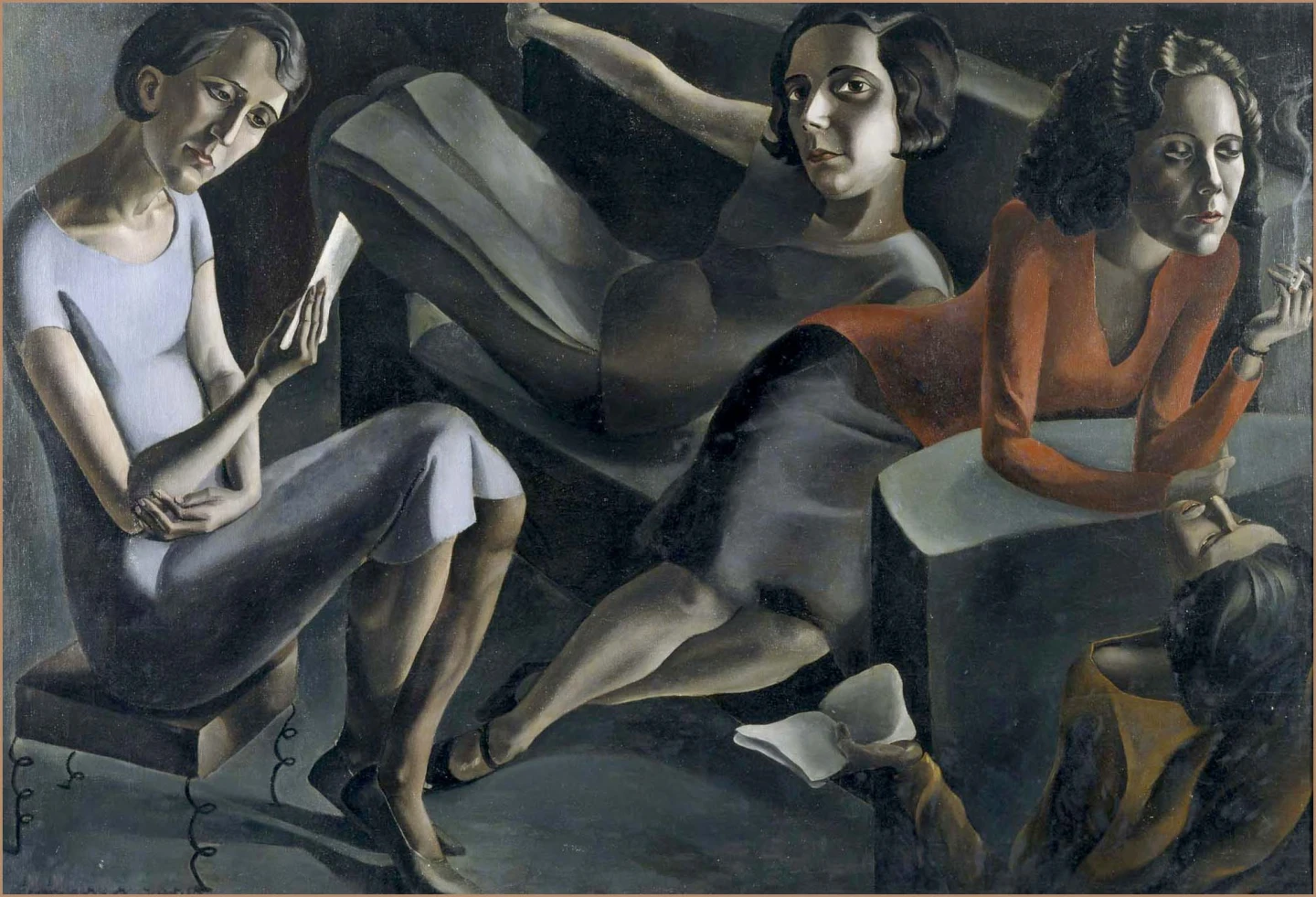
Ángeles Santos
La tertulia, 1929
The Study Centre hosts and supports the research activities and knowledge production of the Museo Reina Sofía. Based on diverse epistemological traditions and methodological approaches, its research and programmes share the common goal of broadening the horizons of both the interpretation of art and culture and the study of their histories and theories, through the testing of new critical approaches and the creation of interpretative communities around them.
The activities of the Study Centre are structured around four main lines: the articulation of academic relationships and programmes, the support of research stays, the development of study groups, and the organisation of seminars and lectures on art history and cultural studies. These programmes are deployed over long periods of time and involve internal and semi-public collective processes with occasional public events that allow for the opening, sharing, and discussion of different research trajectories, thereby advancing them.
Academic relations
Academic collaboration is fostered through official study programmes and participation in academic research networks and groups. The aim is to strengthen the common space for knowledge production and transfer between academia and the Museo.
Research
Seminars and Lectures
Chairs
- Juan Antonio Ramírez Chair
A permanent forum for reflection on the history and historiography of art, understood as a discourse with specific conventions that must continue to be expanded, renewed and tested in order to update its relevance in today's world and society from the perspective of cultural studies. - José Luis Brea Chair
Dedicated to visual cultures and their study as a field of study in its own right, and to reflection on the image and the epistemology of visuality in the contemporary world. - María Luisa Caturla Chair
We start from the thinking of María Luisa Caturla to reflect on art in times ‘sick with uncertainty’; that is, to dismantle, digress or imagine the multiple temporalities and materialities of art history and cultural studies from an eccentric perspective, in the sense of being displaced, outside the centre or with a ‘different’ centre.
Seminars
Sociología Ordinaria
Encounters
Sociología Ordinaria is a research group from the Complutense University of Madrid’s (UCM) Sociology Department. Formed in 2011, its concerns revolve around developing new research and teaching methodologies that enable sociological imagination to be applied to contemporary daily life. The group seeks to place value on the dense socio-political roots of the ordinary, an aspect which is often indiscernible in predominant academic analysis. Under the slogan “learning from the banal, the frivolous and the superficial”, its members look to render an account of the complexity and power relations underlying such diverse social and cultural phenomena as the use of dating apps, language around COVID-19, the world of the cuplé, reality shows, pyjama parties, popstars, TikTokers and club culture.
Suscríbete al boletín
Recibe todas las novedades del Centro de Estudios
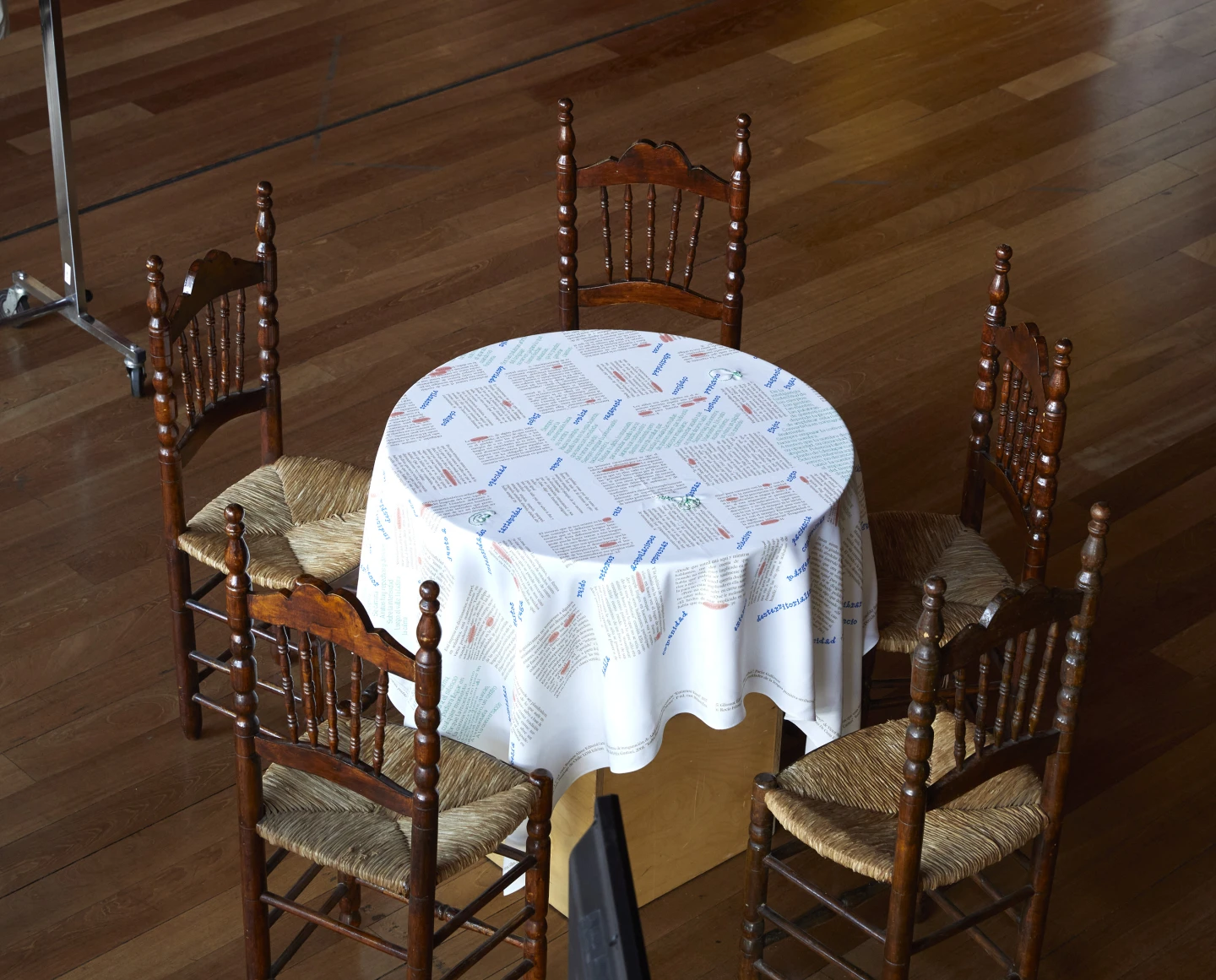

![Mladen Stilinović, An Artist who Cannot Speak English Is no Artist [Un artista que no habla inglés no es un artista], 1992](https://recursos.museoreinasofia.es/styles/small_landscape/public/Investigaci%C3%B3n%20y%20educaci%C3%B3n/AD07547.jpg.webp)
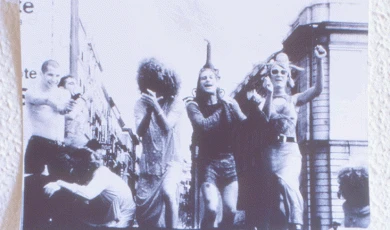
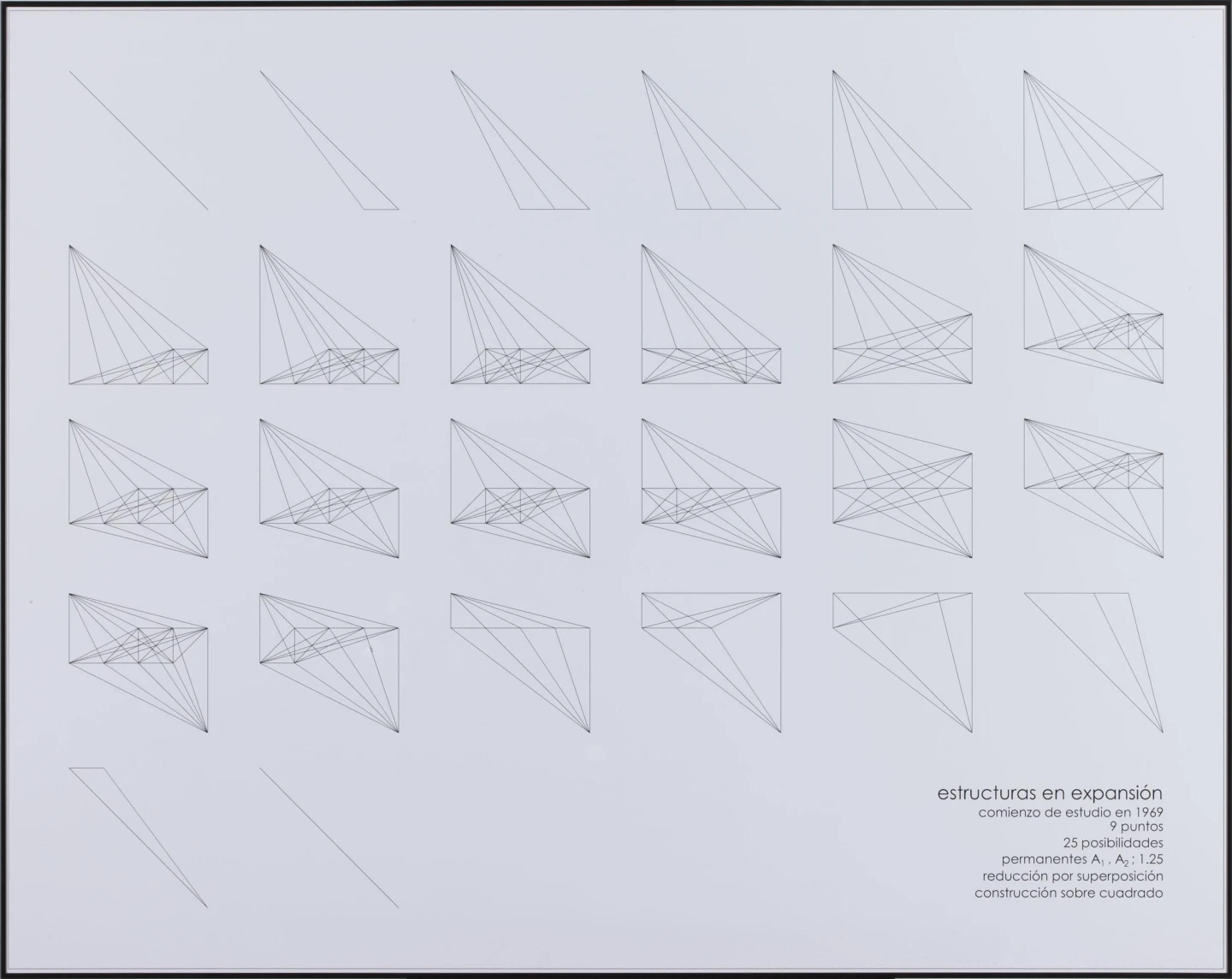
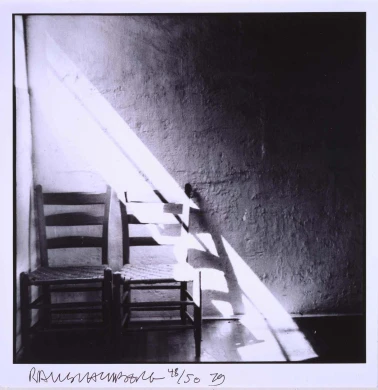
![Tracey Rose, The Black Sun Black Star and Moon [La luna estrella negro y negro sol], 2014.](https://recursos.museoreinasofia.es/styles/small_landscape/public/Obra/AD07091_2.jpg.webp)
![Basel Abbas y Ruanne Abou-Rahme, At Those Terrifying Frontiers Where the Existence and Disappearance of People Fade Into Each Other [En esas fronteras aterradoras donde la existencia y la desaparición de personas se disuelven entre sí], 2019](https://recursos.museoreinasofia.es/styles/small_landscape/public/Colecci%C3%B3n/abbasabourahme.png.webp)
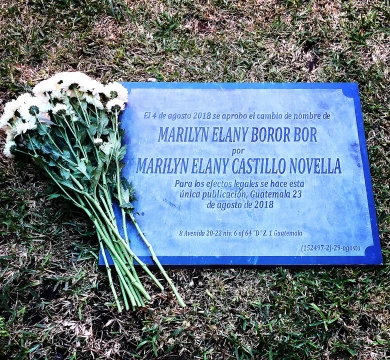
![Dara Birnbaum, Technology/Transformation: Wonder Woman [Tecnología/Transformación: la mujer maravilla], 1978-1979. Museo Reina Sofía](https://recursos.museoreinasofia.es/styles/small_landscape/public/Actividades/wonder.jpg.webp)
![John Baldessari, Prima Facie (Third State): From Aghast to Upset [Prima Facie (tercer estado): de aterrado a disgustado], 2005. Museo Reina Sofía](https://recursos.museoreinasofia.es/styles/small_landscape/public/Actividades/so.jpg.webp)